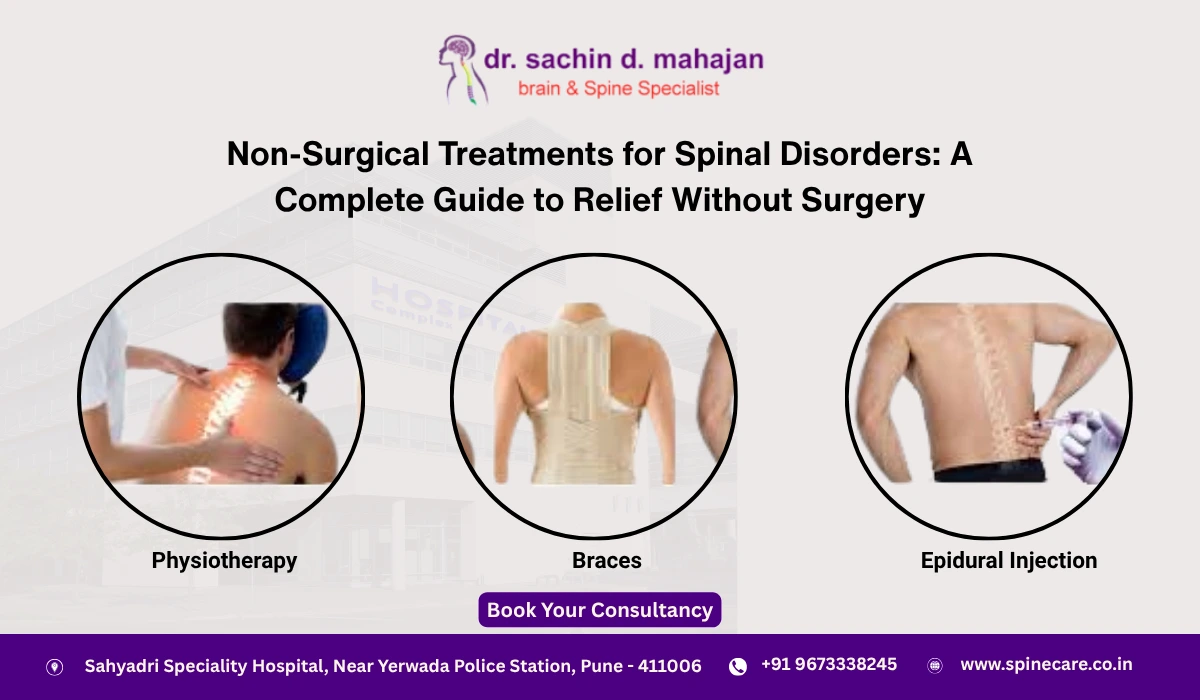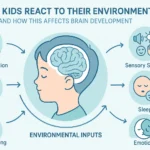
Non-Surgical Treatments for Spinal Disorders: A Complete Guide to Relief Without Surgery
Back pain and spinal disorders are among the leading causes of disability worldwide. According to studies, nearly 80% of people experience back pain at some point in their lives. While some cases require surgical intervention, the majority can be managed through non-surgical treatments that focus on pain relief, mobility restoration, and preventing future complications.
If you are seeking solutions for back or neck pain, consulting a Spine Specialist in Pune can help you explore conservative treatment methods before considering surgery. This guide covers the most effective non-surgical treatment options, lifestyle modifications, and when surgery becomes the last resort.
Understanding Spinal Disorders
The spine is a complex structure made up of vertebrae, discs, ligaments, and nerves. Disorders affecting any of these components can cause significant pain and discomfort. Common spinal disorders include:
- Herniated Disc – when the cushioning disc slips out of place.
- Degenerative Disc Disease – natural wear and tear with age.
- Spinal Stenosis – narrowing of the spinal canal leading to nerve compression.
- Sciatica – pain radiating from the lower back down the leg.
- Scoliosis or Kyphosis – abnormal curvature of the spine.
Most of these conditions can be initially managed with non-surgical treatments before surgical approaches are considered.
Benefits of Non-Surgical Treatments
Non-surgical treatments are often the first line of care because they:
- Avoid surgical risks and complications
- Encourage natural healing and strengthening
- Provide cost-effective solutions
- Require minimal downtime
- Can be combined with lifestyle modifications for long-term results
Patients under the guidance of the Best Spine Surgeon Pune often undergo non-surgical therapy before any invasive treatment is recommended.
Effective Non-Surgical Treatment Options
1. Medications
Medications are often prescribed to manage pain and inflammation. These include:
- NSAIDs (Non-Steroidal Anti-Inflammatory Drugs) – Ibuprofen, Naproxen
- Muscle Relaxants – relieve muscle spasms associated with back pain
- Nerve Pain Medications – Gabapentin or Pregabalin for nerve-related issues
- Steroids (Oral/Injectable) – reduce severe inflammation temporarily
While medications provide relief, they are not a permanent solution and should be complemented with other therapies.
2. Physiotherapy and Rehabilitation
Physiotherapy is one of the most effective non-surgical treatments for spine disorders. A physiotherapist designs customized exercise programs to:
- Strengthen spinal muscles
- Improve flexibility and posture
- Reduce nerve compression
- Prevent recurrence of pain
Popular techniques include:
- Stretching & Strengthening Exercises
- Manual Therapy & Mobilization
- Ultrasound Therapy & Heat/Ice Application
- Core Stabilization Workouts
When performed under expert guidance, physiotherapy not only alleviates symptoms but also restores normal spinal function.
3. Epidural Steroid Injections
For patients with severe inflammation or nerve compression, epidural injections can provide targeted relief. These injections deliver anti-inflammatory medication directly into the epidural space of the spine, reducing pain significantly for weeks or months.
They are especially effective for conditions like:
- Herniated discs
- Sciatica
- Spinal stenosis
However, injections are temporary solutions and are used alongside physiotherapy and lifestyle changes.
4. Lifestyle Modifications
Daily habits play a crucial role in spine health. Small but consistent changes can reduce the recurrence of pain:
- Maintain Proper Posture – avoid slouching while sitting or standing
- Ergonomic Workstation Setup – adjustable chairs, lumbar support, standing desks
- Regular Exercise – yoga, walking, swimming, and low-impact activities
- Weight Management – excess weight puts pressure on the spine
- Quit Smoking – smoking accelerates disc degeneration
A Spine Specialist in Pune often recommends lifestyle coaching as part of long-term care.
5. Alternative Therapies
Many patients find relief through complementary therapies such as:
- Acupuncture – stimulates nerves and improves blood flow
- Chiropractic Care – spinal adjustments to relieve pressure
- Massage Therapy – reduces muscle tension and promotes relaxation
- Yoga & Pilates – enhance core stability and flexibility
These should always be performed under professional supervision to avoid worsening the condition.
6. Bracing and Support Devices
In cases of scoliosis, fractures, or severe instability, spinal braces or orthotic devices may be recommended. These help:
- Support spinal alignment
- Reduce pressure on affected areas
- Prevent further damage while healing
When Non-Surgical Treatments Aren’t Enough
While most spinal issues can be managed without surgery, there are cases where non-surgical treatments fail. Surgery may be considered when:
- Pain persists beyond 6–12 weeks despite conservative care
- There is progressive neurological weakness or numbness
- Spinal deformities worsen (e.g., severe scoliosis or kyphosis)
- Bowel or bladder dysfunction occurs due to nerve compression
In such cases, consulting the Best Spine Surgeon Pune becomes essential to discuss minimally invasive or advanced surgical options.
Preventing Spinal Disorders
“Prevention is better than cure” is especially true for spine health. Here are preventive strategies:
- Exercise Regularly – keep your back and core muscles strong
- Lift Correctly – bend at your knees, not your back
- Sleep on a Supportive Mattress – maintain spinal alignment
- Stay Hydrated – keeps spinal discs healthy
- Routine Checkups – early detection prevents complications
Role of a Spine Specialist
A Spine Specialist in Pune plays a key role in diagnosis and personalized treatment planning. They use advanced imaging (MRI, CT scans, X-rays) to identify the exact cause of pain and suggest a tailored mix of non-surgical methods.
Choosing an experienced spine expert ensures accurate treatment and prevents unnecessary surgery.
Conclusion
Non-surgical treatments for spinal disorders offer safe, effective, and holistic solutions for most patients. From medications and physiotherapy to lifestyle changes and injections, these approaches can significantly improve quality of life.
However, timely consultation with a Spine Specialist in Pune is crucial to evaluate your condition and determine the best course of action. And in rare cases where surgery becomes inevitable, the Best Spine Surgeon Pune ensures precision care with advanced techniques.
Call to Action
Looking for expert advice on spine care? Book an appointment with a trusted Spine Specialist in Pune at SpineCare Clinic and explore non-surgical options tailored to your needs.
Read Here: Common Spine Problems: Causes, Symptoms, and Treatment Options You Should Know




